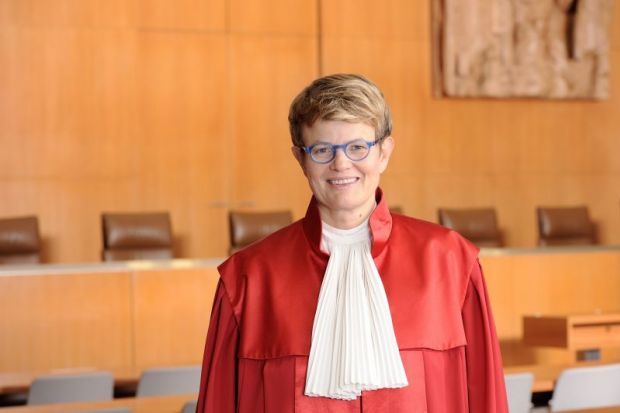Academics need to show far more “solidarity” towards colleagues in subjects such as gender studies that are under fire from far-right populists, one of Germany’s constitutional court judges has warned, arguing that such attacks are only the first step in a broader assault on academia.
Speaking at an event on freedom of expression at universities, Susanne Baer, herself a professor of public law and gender studies at the Humboldt University of Berlin, said that some scholars had “underestimated” the threat.
“Those early attacks on, say, gender studies or queer theory or critical race studies, are attacks against all of us,” she said.
Populists would not stop at these subjects, she warned delegates at “Freedom of Expression: On the Culture of Debate at Universities”, an online event held by the University of Chicago and the German Rectors’ Conference.
“These are attacks from a script. And that script says: start with the weakest portion of the institution. Then gradually expand into the more mainstream and strong [disciplines],” she said.
The erosion of universities and liberal democracy would not start with attacks on law schools, she said, “but it will start with queer theory at a law school”.
“In the past, there has not been that outcry right from the start when our weaker colleagues were under pressure,” he warned. “And that should be one strong reaction.”
Since 2011, Professor Baer has sat on Germany’s constitutional court, the equivalent of the US Supreme Court. During a decorated academic career, she has held numerous faculty roles including a visiting position at the Central European University, an institution forced last year to largely leave Hungary by the country’s increasingly authoritarian government.
During her address, she also mounted a personal defence of “safe spaces” at universities.
“Safe spaces are, I think, a wonderful idea, particularly if you want to be confronted with uncomfortable ideas, and engage in learning and research,” she said.
Germany’s first openly lesbian constitutional court justice, Professor Baer recalled attending a basement meeting of Lavender Law – an all-queer group of law students at the University of Michigan.
“It was the first time in my university and academic life that I felt entirely safe. Why is that?” she asked. It was because “I was not rejected because of more or less explicit feelings about sexual orientation”.
Joining an association for female lawyers in Germany had been a similarly freeing experience, she continued.
“There was not the boring machismo around, but a space to open up for very controversial debates,” Professor Baer said. “I have to say, I’ve never seen more controversial debates than there ever in my life.”
Later in the discussion, she acknowledged the theoretical “risk” that safe spaces “may reduce the opportunities of exchange and criticism in universities”, as some critics argue.
“But I don’t see the reality,” she said. Instead, they were places where students could speak without fear of being “dismissed” or their opinions deemed “inaccurate” or “overly emotionally stated”.
“Some people need them, and thus universities should provide them, while the universities as a whole should take care and still engage in as diverse a debate as possible,” she said.
Register to continue
Why register?
- Registration is free and only takes a moment
- Once registered, you can read 3 articles a month
- Sign up for our newsletter
Subscribe
Or subscribe for unlimited access to:
- Unlimited access to news, views, insights & reviews
- Digital editions
- Digital access to THE’s university and college rankings analysis
Already registered or a current subscriber? Login








